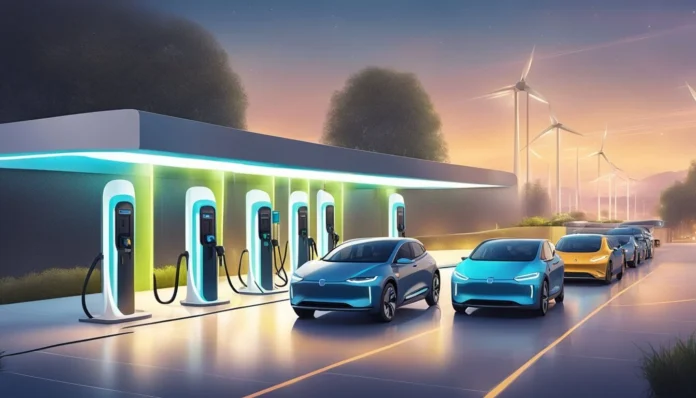With growing concerns about climate change and the need to reduce greenhouse gas emissions, electric vehicles (EVs) have emerged as a promising solution to mitigate environmental impact. Unlike traditional gasoline-powered vehicles, EVs run on electricity, offering a cleaner and more sustainable mode of transportation. In recent years, there has been a significant surge in the popularity of EVs, driven by advancements in technology, government incentives, and a shifting societal focus towards sustainability.
Advantages of Electric Vehicles
Environmental Benefits
Electric vehicles produce zero tailpipe emissions, reducing air pollution and mitigating the harmful effects of greenhouse gases on the environment. By transitioning to EVs, individuals can play a crucial role in reducing carbon footprints and combating climate change.
Cost Savings
While the initial cost of purchasing an electric vehicle may be higher than that of a traditional car, EV owners can enjoy long-term cost savings. With lower fuel and maintenance costs, EVs offer significant savings over the vehicle’s lifespan, making them a more economical choice in the long run.
Energy Efficiency
Electric vehicles are inherently more energy-efficient than gasoline-powered cars. EVs convert a higher percentage of energy from the grid into powering the vehicle, resulting in greater energy efficiency and reduced reliance on fossil fuels.
Overcoming Challenges
Range Anxiety
One of the primary concerns associated with electric vehicles is range anxiety—the fear of running out of battery power before reaching a destination. However, advancements in battery technology have significantly improved the range of EVs, alleviating this concern for many drivers.
Charging Infrastructure
The availability of charging infrastructure remains a key barrier to widespread EV adoption. To address this challenge, governments and private companies are investing in the development of public charging stations and expanding charging networks to support the growing EV market.
Government Support and Incentives
Governments around the world are implementing various policies and incentives to promote the adoption of electric vehicles. These include tax incentives, rebates, and subsidies for EV purchases, as well as initiatives to expand charging infrastructure and support research and development in the EV industry.
The Future of Electric Vehicles
As technology continues to evolve and battery costs decline, the future of electric vehicles looks promising. Electric cars are expected to become increasingly affordable, making them accessible to a broader range of consumers. Additionally, advancements in autonomous driving technology and vehicle-to-grid integration are poised to further revolutionize the automotive industry.
Conclusion
Electric vehicles represent a significant step towards a cleaner, more sustainable future. With their environmental benefits, cost savings, and technological advancements, EVs are reshaping the automotive industry and driving the transition towards greener transportation solutions. By embracing electrical vehicles, individuals and communities can contribute to a healthier planet and pave the way for a more sustainable future.




